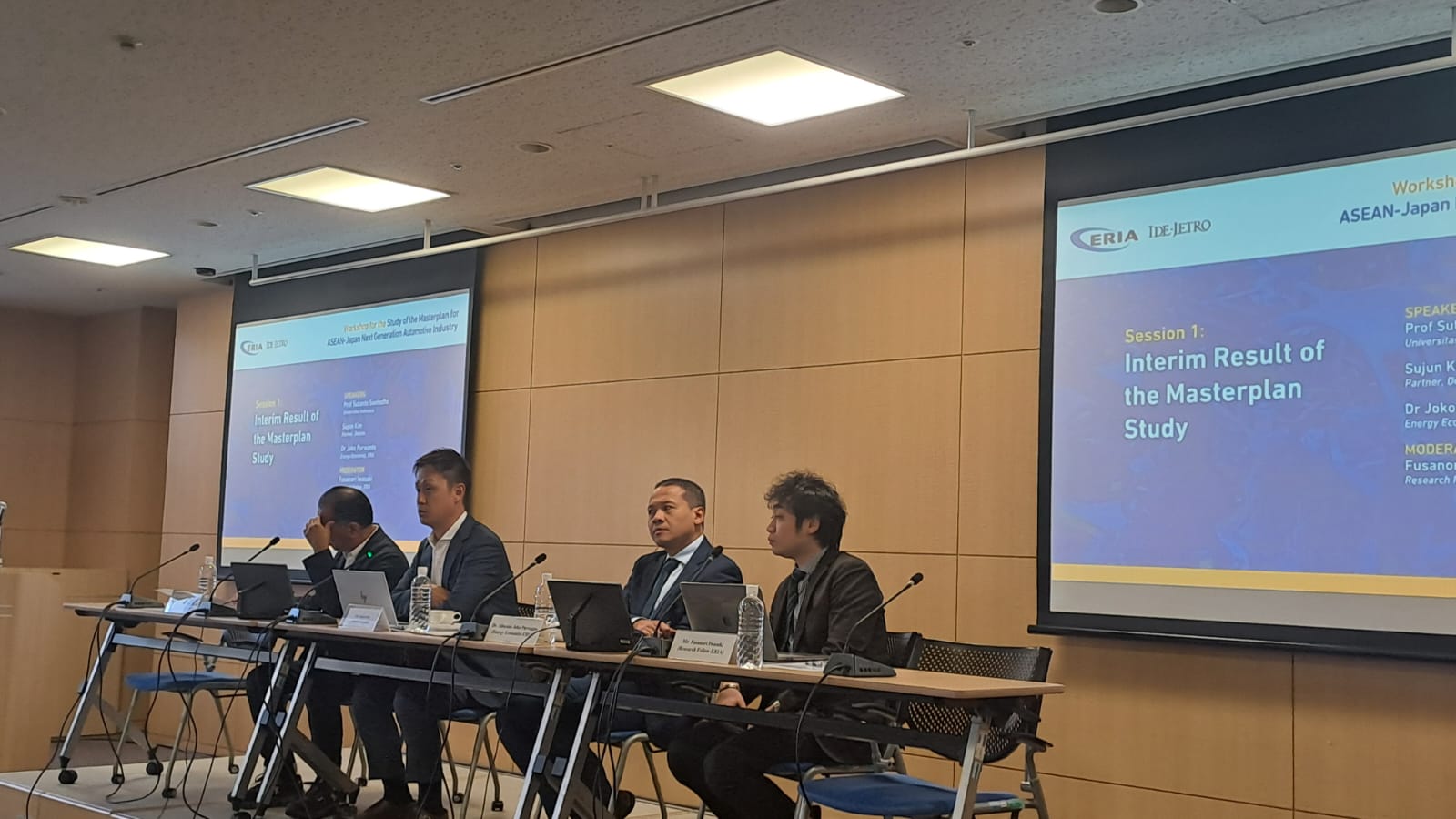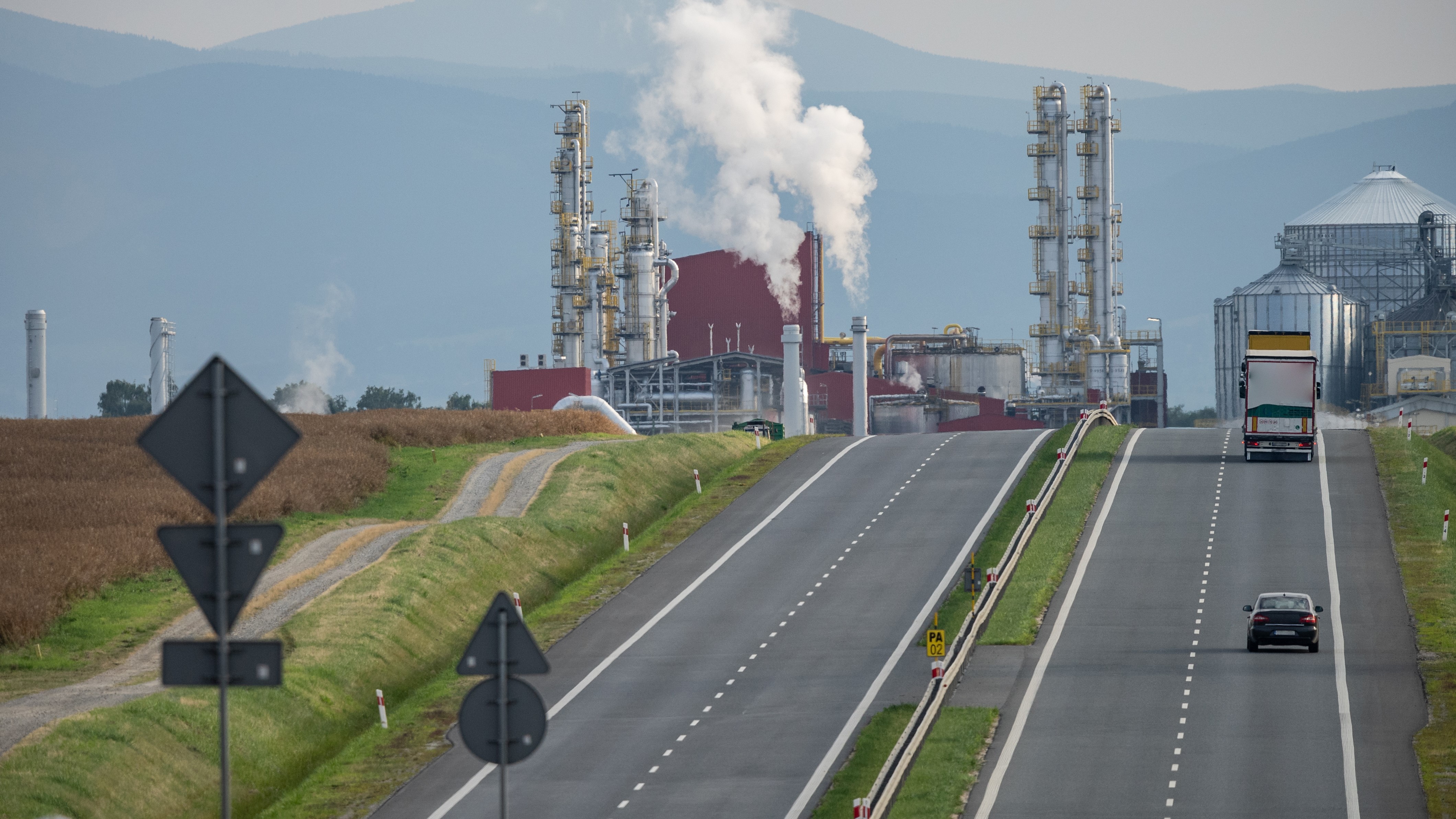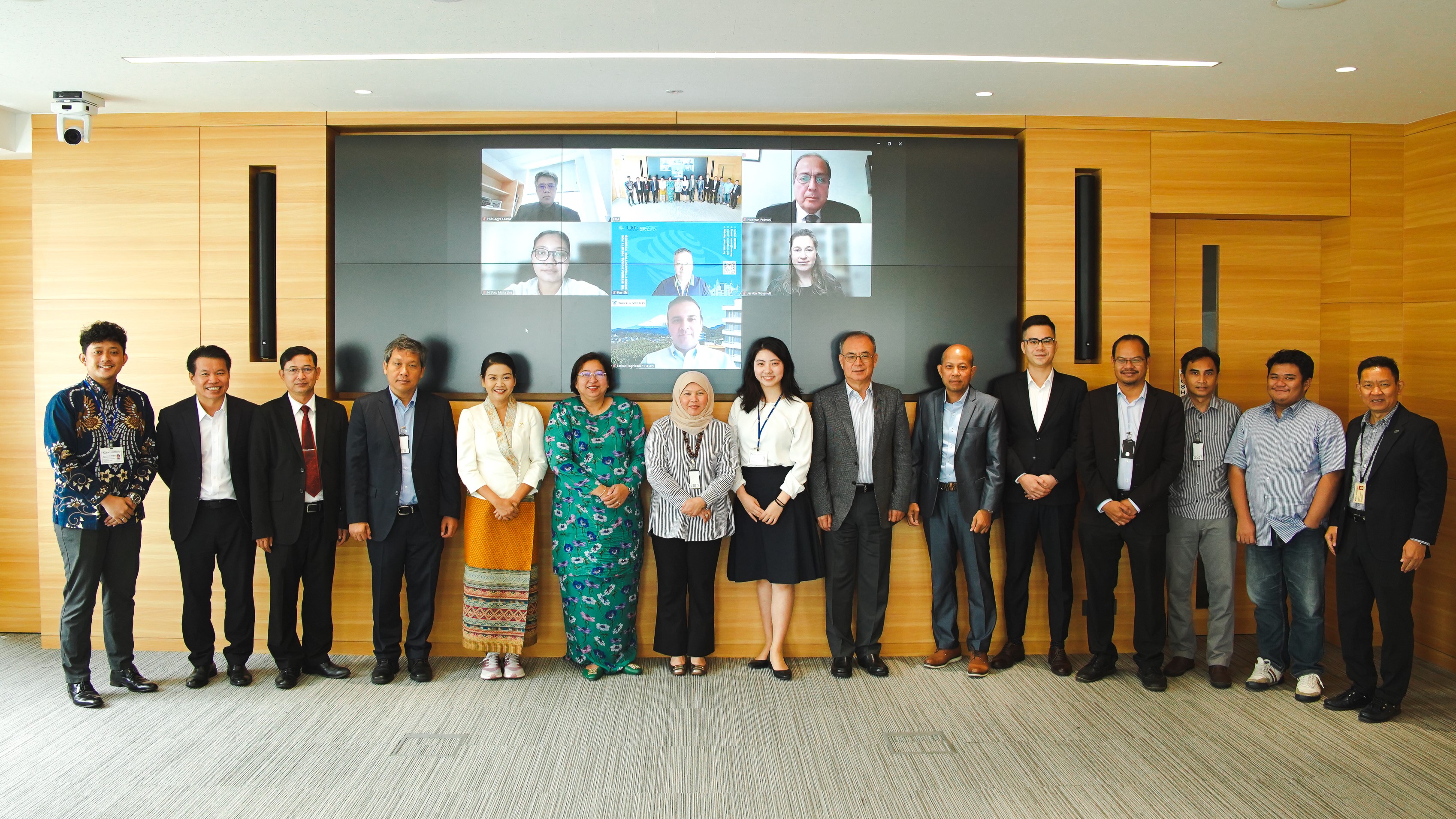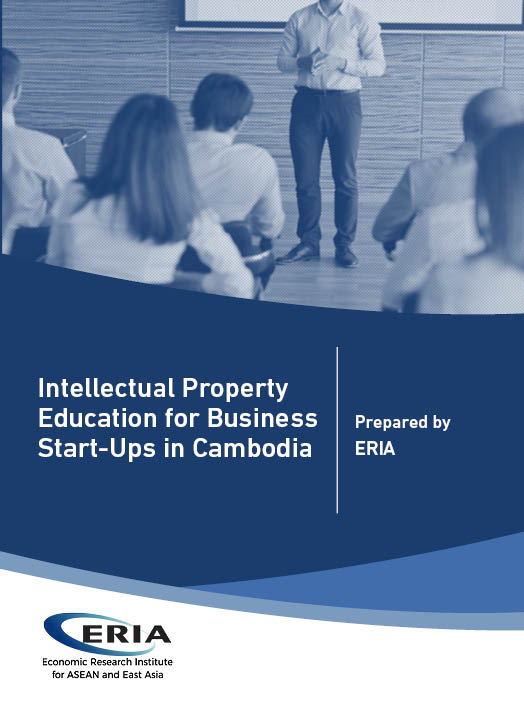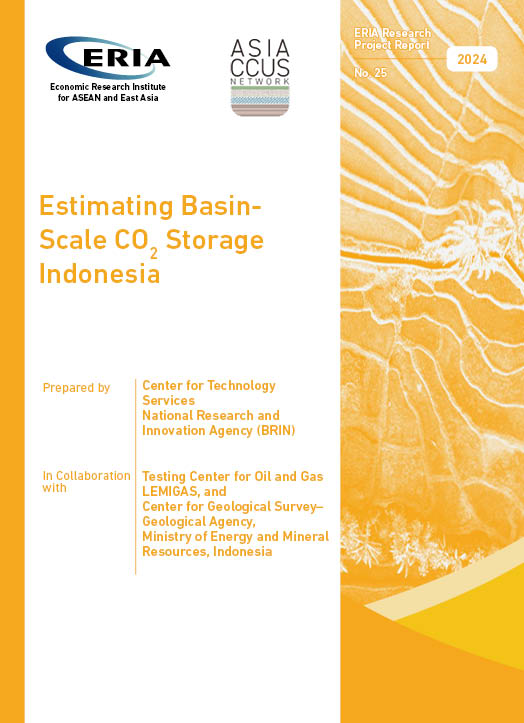Workshop Explores ASEAN–Japan Collaboration for Decarbonising the Automotive Industry
Share Article:
Print Article:
Tokyo, 18 December 2024: The workshop for the Study of the Masterplan for ASEAN–Japan Next Generation Automotive Industry, organised by ERIA and co-organised by IDE–JETRO, delved into the preliminary findings of a masterplan aimed at decarbonising ASEAN’s automotive industry while preserving regional competitiveness. The event brought together Japanese automotive stakeholders and experts to contribute insights aligned with Japan’s vision for collaboration and sustainable development in the ASEAN automotive sector.
Yuta Okuyama, Chief of Staff (ERIA Representative to ASEAN) and Policy Fellow, delivered the opening remarks, emphasising the critical need for ASEAN’s automotive industry to remain competitive throughout the transition to decarbonisation. He highlighted Japan’s pivotal role in this endeavour and encouraged stakeholder feedback to co-create a sustainable and competitive future.
Keisuke Hosonuma, representing Japan’s Ministry of Economy, Trade, and Industry (METI), underscored the importance of ASEAN–Japan collaboration in navigating global trends such as electrification and digital transformation. Discussions during the workshop focused on Japan’s support through innovative technologies, policy development, and infrastructure investment as key drivers for achieving carbon neutrality in the region.
Session 1: Interim Results of the Masterplan Study
Prof. Sutanto Soehodho (University of Indonesia) highlighted pressing challenges, including increasing vehicle emissions and inadequate infrastructure. He proposed sustainable measures such as tax incentives, carbon trading systems, and expanded charging networks to balance growing transportation needs with environmental goals.
Sujun Kim (Deloitte) presented interim findings from the ASEAN–Japan Masterplan, focusing on decarbonisation and multi-pathway transitions. Electrification, primarily through BEVs and PHEVs, is projected to grow modestly until 2035, with Thailand leading the region. Infrastructure development and transparent policy frameworks were identified as critical factors for accelerating adoption.
Alloysius Joko Purwanto (ERIA) emphasised the integration of renewable energy into EV ecosystems for long-term sustainability. He highlighted the complementary role of biofuels and stressed the need for strategic policy alignment to minimise economic disruptions during the transition.
Session 2: Questionnaire and Expert Dialogue
Led by Ms Haruka Ohta (Deloitte), this session refined hypotheses regarding ASEAN’s automotive transition. Representatives from JAMA (Japan Automobile Manufacturers Association) and JAPIA (Japan Auto Parts Industries Association), including major companies such as Toyota, Honda, Mitsubishi, and Denso, engaged in discussions on powertrain transitions, investment priorities, and maintaining manufacturing competitiveness. Participants highlighted the necessity of clear policies and localisation strategies to address technological and regional disparities.
Session 3: Vision and Strategy of OEMs and the Auto Parts Industry on Decarbonisation
Shinichiro Oka (JAMA) reiterated the commitment to achieving carbon neutrality by 2050 through multiple pathways, including FCEVs, BEVs, and carbon-neutral fuels. He emphasised the importance of cooperative strategies tailored to local energy conditions.
Yoshiro Nakano (JAPIA) addressed challenges faced by SMEs in adopting advanced technologies and meeting decarbonisation targets. JAPIA’s support initiatives include promoting best practices, localisation efforts, and enabling access to new opportunities. ASEAN’s strategic role was underscored, as the region accounts for 23% of overseas sales and 34% of overseas employees for JAPIA members.
Session 4: Incorporating Broader Research and the Way Forward
Dionisius A. Narjoko (ERIA) analysed the impact of EV growth on global value chains, emphasising the importance of partnerships between resource-rich countries like Indonesia and Australia. Discussions also focused on mitigating critical mineral shortages and overcoming barriers to localised EV production.
Fusanori Iwasaki (ERIA) presented insights on vehicle recycling practices in ASEAN, contrasting structured systems like Malaysia’s Authorized Automotive Treatment Facilities with informal approaches elsewhere. He advocated for incorporating circular economy principles to enhance the sector's sustainability and competitiveness.
Alloysius Joko Purwanto (ERIA) explored strategies for maintaining a balance between competitiveness and sustainability, including EV battery recycling, securing critical mineral supply chains, and fostering regional R&D collaborations.
Closing Remarks and Next Steps
Salvador Buban, Senior Policy Fellow at ERIA, concluded the workshop by thanking participants for their valuable contributions. He emphasised the importance of collaboration in shaping a competitive and sustainable automotive future for ASEAN. Mr Buban called for continued engagement as the final masterplan report is prepared for consultation with ASEAN Economic Ministers and Japan’s METI.

